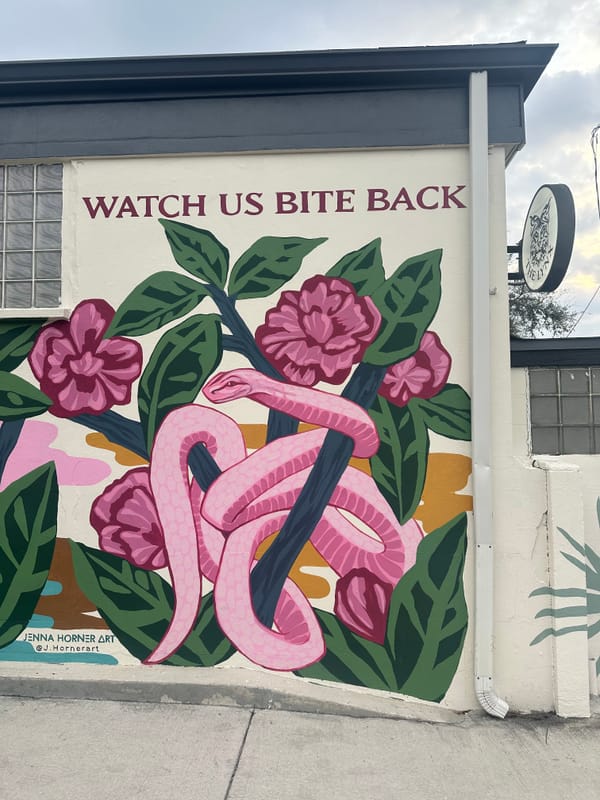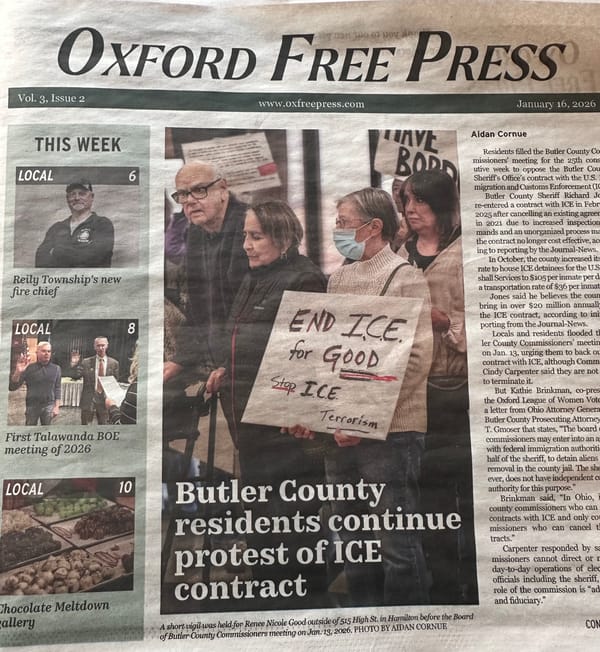Things you can do
Fight for your democracy
Fight for your democracy
- Consume a variety of news outlets. For those who can't stomach very much news, NPR has a five minute news summary podcast updated every hour (in the top right corner of their webpage click "Hourly News" or subscribe on an app) each day that mixes international and national news. For more in-depth reporting the Daily Podcast and the Ezra Klein Show from the NYT are quite good (and often have written summaries of episodes if you are not the podcast type), and the Meidas Touch Network does interesting interviews, but beware that some of their coverage is of the outraged variety.
- It’s important to seek out international news as it is getting pushed from front pages by Trump drama. Al-Jazeera has a great three-minute podcast that summarizes international news. BBC also runs a good global news podcast (With too much coverage of the US, in my opinion). I have used both with students in class with good results.
- Support media that does brave investigative reporting. If you find yourself consistently relying on a particular source for news, consider supporting it financially. Yes, it costs money but so does authoritarianism in its own ways. Many online subscriptions are reasonably priced. I subscribe to a wide range of outlets, local, national, and international. Worthy outlets include the Guardian (UK-based, $5), the Intercept ($15), National Public Radio, ProPublica ($5), among others. Consider also supporting a local paper in your area if they are doing investigative reporting. Without a strong media, Quis custodiet ipsos custodes? (Who will watch the watcher?). I fucking will. And so will you.
- Share your opinion - when there is a conversation going on, and your opinion is not represented, consider offering it. As political space closes, you will need to learn when it is safe to do this, but right now and with people you know well this is still an appropriate choice. We can all point to conversations that shaped our views of particular issues and we can create those opportunities for others. Sometimes it is as simple as saying “I disagree,” or “This is misinformation.”
- Organize - individual political action is important but can be multiplied by acting in concert with others. Consider starting a discussion group, joining a political party, or in some other way supporting a group effort to spread awareness about an issue, encourage voter participation, gather signatures for a referendum, or a similar activity. If you are able-bodied, resist the urge to do things online. Go to an actual group. The website Meetup can be a useful platform to find groups to join or to advertise a group you are forming. MoveOn.org runs campaigns you can join.
- Volunteer- when living in a political context that is hostile to one’s values, there is (actual and cathartic) value to acting out of one’s values. Volunteering is one way to honor your own values and meet others who feel similarly. It can also be a beautiful way to express dissent.
- Create art - I recently binged a large amount of literature related to the sculptor Michelangelo. The political context often interrupted his desire to make art, and he frequently found himself expected to work for authorities with whom he had serious disagreements. Rather than seek out a pure life completely separate from the powers of the day, he found ways to use art commissions from wealthy patrons as acts of resistance. While he sets a high bar, we can all use art as a form of resistance. For more on this subject, Kendra Patterson has several beautiful episodes of her podcast Stepping Off Now on art as dissent. This is the most recent one.
- Build connections - Twenty-five years ago the political scientist Robert Putnam pointed out how there was increasing weakness in the American social fabric in his book Bowling Alone: The Collapse and Revival of American Community. He found that Americans were joining clubs (like bowling clubs) in less and less numbers. The problem with a society that doesn't join is that there is a lack of cross-cutting cleavages. In a healthy community, cleavages don't overlap. So you may be in one economic class, while your next door neighbor is in a different one, but your presence in the same neighborhood creates a share identity even though your class identity doesn't overlap. Stable societies have multiple cross-cutting cleavages. In unstable societies, people go to work, school, church/house of worship, the gym and other institutions with the same people. Are you interacting with the same people all of the time? How could you diversify your social network and build connections across class, ethnic, or religious cleavages (differences)?
- Pressure political actors - at the end of the day, we have a representative democracy. It is our job as citizens to pressure our representatives to act in ways that reflect their constituents' priorities. Do you know who your representatives are? Which one is the least aligned with your values? How have they voted recently? Do they need to hear from you? Use this tool to find your representatives in Congress and to get their contact information.
- Support voting - Track upcoming elections in your area for various offices, attend meet the candidate sessions, volunteer to run polling stations, transport people to the polls. Also track efforts to suppress voting in your area and oppose them in word and deed.
- Support organizations taking the Trump administration to court like the ACLU and the AAUP.

